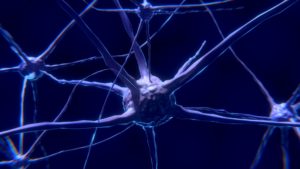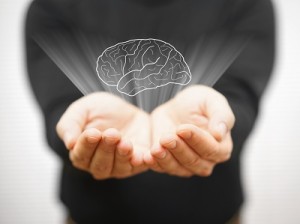- Calls to this hotline are currently being directed to Within Health, Fay or Eating Disorder Solutions
- Representatives are standing by 24/7 to help answer your questions
- All calls are confidential and HIPAA compliant
- There is no obligation or cost to call
- Eating Disorder Hope does not receive any commissions or fees dependent upon which provider you select
- Additional treatment providers are located on our directory or samhsa.gov
Practical Neurobiology for Clinicians: Eating Disorder Diagnoses & Neurology – Part I

I am the Medical Director here at Laureate Eating Disorders Program. I’ve been here for almost 15 years now, and I really enjoy getting the ability to work with patients both inpatient and outpatient. I am FBT trained and run a residential program.
I also do research, so, I have experience with eating disorders from all angles. I am going to discuss the basics of how we look at eating disorders and the neurobiology of these disorders and, hopefully, give you some insight about how I use this to treat patients better.
First, let’s discuss a big question some may have – why consider neurobiology?
We continue to expand our knowledge of how dieting, self-esteem, body-image issues, etc. impact eating disorders in both males and females.
As we do so, it will be really important that the field also moves toward looking at the neurological underpinnings involved, not only to better understand the disorders but to get better feedback on how the brain is changing or how interventions are working neurologically.
This information will help us to answers questions such as, “when do you know that somebody’s well?” or “when do you know if somebody’s having a relapse?” A lot of times, we rely on rapport or the individual’s weight to answer these questions.
Actually understanding how an individual is thinking and how their brains are actually working could certainly be helpful. Most clinicians know the concept of looking at “biopsychosocial,” biological, psychological, and social, factors.
In my personal experience as a psychiatrist, I feel the biological component of the brain, and the body and how they interact is the most overlooked area in this sense. We put a huge emphasis on psychology, and a huge emphasis on family systems and social experiences and this is valid, as they are incredibly important.
However, we need to also look at the individual’s programming, how they are wired. This biological mechanism is one that often gets the short end of the stick.
In my work, I often look at all of this and ask myself, “how do I take an individual with this brain, these traits, this family system, these social experiences, and get them eating properly or get them feeling less anxious or get them well?”
 I think neurobiology will lead to better and more individualized interventions in general medicine. In psychiatry right now, we are using the 5th Edition of the Diagnostic and Statistical Manual of Mental Disorders (DSM-5).
I think neurobiology will lead to better and more individualized interventions in general medicine. In psychiatry right now, we are using the 5th Edition of the Diagnostic and Statistical Manual of Mental Disorders (DSM-5).
The DSM began after World War II as a US manual and became international around the 80s.
During this time, eating disorders became more well-known and part of the DSM vernacular so that, if an individual is diagnosed with anorexia nervosa, for example, most professionals know the criteria of this.
This criterion has changed over the years, and our view of body image has absolutely changed as well. An essential component of this change is the Health at Every Size movement, which focuses on the idea that, when looking at genetics, biology, and neurobiology, not everyone has the same underlying genetic weight make-up.
This movement also emphasizes that only looking at weight misses out on the bigger picture of health.
Another change is that the DSM-5 included Severity Criteria, which have been somewhat controversial, as, again, talking about expanding out behaviors and individuals and, then, going back to BMI, which is a very population-based number.
Looking at Bulimia Nervosa, the standard has been if binge-purge behaviors occur about once a week. Advances have also begun to emphasize the importance of non-purging types as well as considering the neurobiology such as chasing dopamine as a means to feel better right away.
 With Bulimia, the criteria for determining the severity is based on the number of episodes per week.
With Bulimia, the criteria for determining the severity is based on the number of episodes per week.
With Binge Eating Disorder, this is certainly not a new disorder, but, it was a new addition to the DSM-5.
It is the most common eating disorder, and the treatment community is still working to find the best and the most affordable and accessible way for individuals struggling to find treatment for this.
As a researcher, I see that it is a lot like Bulimia, but I would say without the “undoing,” AKA, the purging. What creates this difference or why it occurs is unclear, and there are many factors to be considered, such as differences in sex distribution between these illnesses.
 Finally, looking at Other Specified Feeding or Eating Disorder (OSFED), which was previously known as Eating Disorder Not Otherwise Specified (EDNOS).
Finally, looking at Other Specified Feeding or Eating Disorder (OSFED), which was previously known as Eating Disorder Not Otherwise Specified (EDNOS).
When you have a system which is based on the collection of symptoms that you place in certain boxes, it is inevitable that individuals will be left out.
For example, an individual may have significant purging symptoms but may not binge, or their weight may not be off.
This absolutely needed to be addressed, hence the diagnosis of OSFED, for individuals with troubling eating symptoms that do not meet full-criteria for other specific disorders.
TO BE CONTINUED IN PART II…
Source:
Virtual Presentation by Scott E. Moseman, M.D., CEDS in the December 8, 2018, Eating Disorder Hope Virtual Conference III: Blasting Through Bias: A Deep Dive into Underserved Populations and Global Issues 2018
Author:
 Scott E. Moseman, M.D., CEDS, has worked with the Laureate Eating Disorders Program since completing his child psychiatry training in 2004, and he currently serves as medical director of the program. He is a board-certified child and adolescent psychiatrist who received his fellowship training at Western Psychiatric Institute and Clinic in Pittsburg, Pennsylvania, where he served as chief fellow.
Scott E. Moseman, M.D., CEDS, has worked with the Laureate Eating Disorders Program since completing his child psychiatry training in 2004, and he currently serves as medical director of the program. He is a board-certified child and adolescent psychiatrist who received his fellowship training at Western Psychiatric Institute and Clinic in Pittsburg, Pennsylvania, where he served as chief fellow.
Dr. Moseman received his medical training from Texas A&M Health Science Center and completed his adult psychiatric training at the University of Arizona. He has spoken throughout the country on topics related to child psychiatry, and he has specific interests in eating, mood and anxiety disorders. Currently, Dr. Moseman is collaborating with Kyle Simmons, Ph.D., at the Laureate Institute for Brain Research to study neural circuits associated with eating disorders using the facility’s state-of-the-art fMRI.
Dr. Moseman has sat on the board for the American Academy of Child and Adolescent Psychiatry as well as co-chaired the special interest group on child and adolescent care for the Academy for Eating Disorders. He currently sits on the board for the Oklahoma Eating Disorders Association.
Editor: Margot Rittenhouse, MS, NCC, PLPC. Learn More About Dr. Scott E. Moseman
 About the Transcript Editor: Margot Rittenhouse, MS, NCC, PLPC is a therapist who is passionate about providing mental health support to all in need and has worked with clients with substance abuse issues, eating disorders, domestic violence victims, and offenders, and severely mentally ill youth.
About the Transcript Editor: Margot Rittenhouse, MS, NCC, PLPC is a therapist who is passionate about providing mental health support to all in need and has worked with clients with substance abuse issues, eating disorders, domestic violence victims, and offenders, and severely mentally ill youth.
As a freelance writer for Eating Disorder and Addiction Hope and a mentor with MentorConnect, Margot is a passionate eating disorder advocate, committed to de-stigmatizing these illnesses while showing support for those struggling through mentoring, writing, and volunteering. Margot has a Master’s of Science in Clinical Mental Health Counseling from Johns Hopkins University.
The opinions and views of our guest contributors are shared to provide a broad perspective of eating disorders. These are not necessarily the views of Eating Disorder Hope, but an effort to offer a discussion of various issues by different concerned individuals.
We at Eating Disorder Hope understand that eating disorders result from a combination of environmental and genetic factors. If you or a loved one are suffering from an eating disorder, please know that there is hope for you, and seek immediate professional help.
Published on January 17, 2019.
Reviewed & Approved on January 17, 2019, by Jacquelyn Ekern MS, LPC
Published on EatingDisorderHope.com

The EatingDisorderHope.com editorial team comprises experienced writers, editors, and medical reviewers specializing in eating disorders, treatment, and mental and behavioral health.

